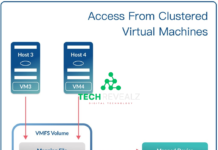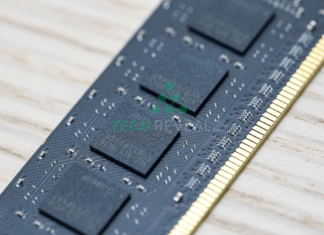Artificial Intelligence in Healthcare
Artificial Intelligence (AI) in Healthcare is more than a comprehensive introduction to artificial intelligence as a tool in the generation and analysis of healthcare data. AI offers chances to help lower human mistake, support medical personnel and professionals, and offer round-the-clock patient care.
AI has the potential to be used much more in analyzing medical photos, X-rays, and scans, diagnosing medical issues, and developing treatment plans as these tools continue to advance. Also Read this articles Moxi Robot Hospital
Applications of AI in Diagnostics
One of the primary areas where AI has showcased its prowess is in diagnostics. Through AI-powered imaging and diagnostic tools, healthcare professionals can achieve unparalleled accuracy in identifying and diagnosing various medical conditions. Early detection, facilitated by AI algorithms, has become a game-changer, enabling swift and precise intervention.
Treatment Personalization
Tailoring treatment plans to individual patients has been a long-standing goal in healthcare. With AI, this goal is becoming a reality. Precision medicine, a field that leverages AI to analyze vast datasets and genetic information, allows healthcare providers to customize treatment strategies, maximizing effectiveness and minimizing side effects. Read more articles visit this our site: Techrevealz.com
Administrative Efficiency
Beyond clinical applications, AI is streamlining administrative processes within healthcare organizations. From appointment scheduling to billing and coding, AI-driven systems are enhancing operational efficiency, reducing errors, and ultimately improving the overall healthcare experience for both providers and patients.
Patient Care and Engagement
AI’s impact extends to patient care and engagement. Monitoring patients in real-time through AI-driven systems ensures proactive responses to health issues. Moreover, AI applications enhance patient engagement, providing personalized health insights and recommendations, fostering a more collaborative approach to healthcare.

Challenges and Ethical Considerations
Despite the transformative potential of AI in healthcare, challenges abound. Implementing AI solutions comes with hurdles such as data security, interoperability, and the need for extensive training. Ethical considerations, including privacy concerns and bias in algorithms, must be addressed to ensure responsible and equitable AI use in healthcare.
Future Trends in AI Healthcare
Looking ahead, several trends are poised to shape the future of AI in healthcare. The integration of emerging technologies, such as augmented reality and natural language processing, holds promise for further innovation. Predictive analytics and machine learning algorithms are expected to become even more sophisticated, driving advancements in patient care and medical research.
AI and Medical Research
AI is not only transforming clinical practice but also accelerating medical research. By analyzing vast datasets and identifying patterns, AI contributes significantly to drug discovery and development. The efficiency gains in research processes contribute to faster breakthroughs and advancements in understanding various diseases.
Security and Privacy Concerns
As AI becomes more ingrained in healthcare, ensuring the security and privacy of patient data is paramount. Robust cybersecurity measures must be in place to safeguard sensitive information. Balancing the benefits of AI with the need for privacy protection remains a critical consideration.
AI Adoption Across Healthcare Sectors
The adoption of AI is not confined to a specific sector of healthcare. Hospitals, clinics, and telemedicine services are increasingly integrating AI applications into their workflows. The widespread adoption of AI-driven solutions is indicative of the technology’s universal relevance and potential to revolutionize healthcare delivery.
Training and Education in AI for Healthcare Professionals
To fully harness the power of AI, healthcare professionals need adequate training and education. Integrating AI education into medical curricula ensures that the workforce is prepared to navigate the complexities of an AI-integrated healthcare system, providing optimal care to patients.

Success Stories in AI Implementation
Several success stories exemplify the positive outcomes of AI integration in healthcare. From enhancing diagnostic accuracy to improving patient outcomes, these examples underscore the transformative impact of AI on the industry. Learning from these success stories can inform future strategies for AI implementation.
Cost Implications of AI in Healthcare
While the benefits of AI in healthcare are substantial, it’s crucial to consider the cost implications. Analyzing the economic impact of AI adoption helps healthcare organizations make informed decisions, balancing the upfront costs of implementation with the long-term benefits and efficiency gains.
Regulatory Landscape
As AI becomes more prevalent in healthcare, regulatory frameworks are essential to ensure ethical practices and patient safety. Governments worldwide are developing guidelines to govern the use of AI in healthcare, emphasizing the need for responsible and transparent AI applications.
Conclusion
In conclusion, artificial intelligence is undeniably reshaping the healthcare landscape. From improving diagnostics and treatment personalization to enhancing administrative efficiency and patient engagement, the impact of AI is far-reaching. As we look to the future, continued advancements in AI technologies will likely redefine how healthcare is delivered and experienced.
FAQs
Q. Is AI replacing healthcare professionals?
A. No, AI complements healthcare professionals by enhancing diagnostic accuracy and streamlining administrative processes.
Q. How is patient privacy ensured in AI-driven healthcare?
A. Robust cybersecurity measures and adherence to privacy regulations ensure the protection of patient data.
Q. What role does AI play in medical research?
A. AI accelerates medical research by analyzing vast datasets, identifying patterns, and contributing to drug discovery.
Q. Are there ethical concerns with AI in healthcare?
A. Yes, ethical considerations include privacy concerns, bias in algorithms, and the responsible use of AI in patient care.
Q. How can healthcare professionals prepare for the AI-integrated future?
A. Education and training in AI for healthcare professionals are essential to navigate the complexities of an AI-integrated healthcare system.

















